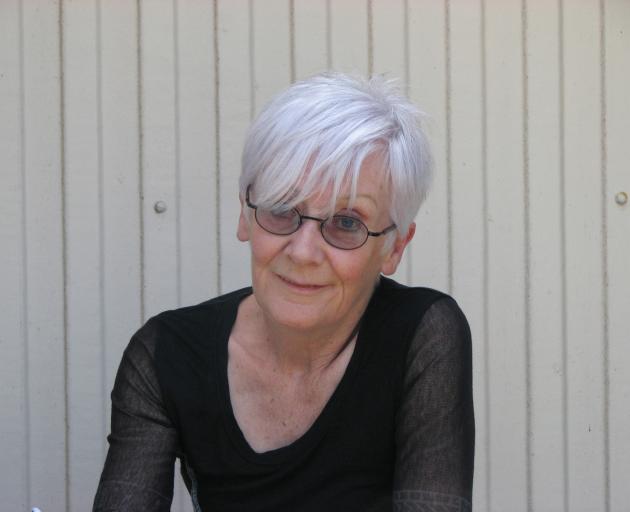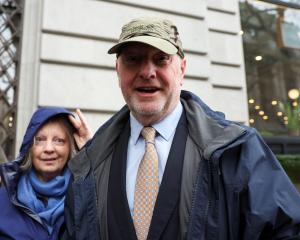
You'll have heard about recent moves by our closest university, neighbouring galaxy, to cut back on staff and courses in the humanities. It seems that not so many students value a qualification in the arts these days.
It's hard to evaluate the outcomes and quantify the benefits of an arts degree. Although in all the humanities the mind is trained to analyse and synthesise information, to think clearly and discerningly, a direct path to an income isn't obvious.
In the Otago Daily Times, Prof Tony Ballantyne, pro-vice-chancellor, humanities, at Otago says, ''What we need to be championing is a broad appreciation of the importance of tertiary education and recognition of the richness of the disciplines that make the university such a vibrant intellectual centre''.
In the same newspaper, an arts student says that there is ''no job'' that requires the specific knowledge she has learnt from completing humanities papers, but that the very skills acquired in the process are important ''for all jobs and everyday life''.
''People tend to turn their nose up when people say it gives you good communication skills, and more empathetic skills ... But I write and read more critically because of the humanities papers I did, and people need to value these things.''
How do we judge their value? Does ''worth'' equal the ability to earn money? Probably degrees in sciences and IT are surer gateways to the job market.
But there's another sort of worth, hard to describe or quantify, which opens up the whole character of a human being through analytical and critical thinking, to empathy, understanding, the ability to communicate, perhaps even wisdom. It's an intellectual richness.
There's a concept of the internet as a vast repository of human knowledge. Nowadays people don't actually need to learn things and possess their own knowledge, but can share in the enormous common store - the skill needed now is how to access it.
We are becoming rather dependent on the internet for everything from work to social interaction. I see this in the blank faces of people who are staring at their phones, forgetting how to engage in two-way, face to face conversation.
Could it be that after a few generations the human brain, ruled by technology, will shrink and change, because it's not being exercised in committing to memory a lot of information, from times tables to the periodic table to historical dates, to the alphabet, to all the large and small facts of general knowledge?
Probably much of the knowledge that I possess in my personal memory is trivial. It's patchy too, because I'm human. But I do have a fascinating library in my head of ideas I have thought about deeply, at school and university. I can go there any time.
Our access to the internet is at present dependent on electricity, which seems to me to be its Achilles heel. I wouldn't be thinking about Achilles, or Homer, or the Iliad, or the Trojan war, or the Trojan horse of Technology, or all the language and culture that has filtered down from those ancient times to us here and now, if I hadn't read Greek history, art and literature in my arts degree.
Reading and research are vital. When in my first year at university I took papers in English, French, philosophy and German, I suddenly had to do far more reading than I had done at school. I had to write a large number of essays discussing this reading.
After the first year the speed of my reading and handwriting had increased - luckily, because there was twice as much to read and write in succeeding years.
Working in this concentrated way over several years surely trains the brain, expands it, even. It gets to know itself, its abilities. It learns to store and to retrieve information. It learns to focus.
Apart from my studies and lectures, I also belonged to the university's dramatic society. I loved theatre. My linguistic memory was increased by the many plays I learnt by heart.
I enjoyed all the reading, writing and talking that went with my studies, especially the talking, for instance the deep discussion in a seminar where you get into the roots of great writing,
My university training in the humanities certainly played a major part in my becoming a writer. I learnt intellectual discipline. My developing brain absorbed a large amount of language, art, history and cultural knowledge.
Some years later, at a certain point this inner store was full, and I found that poetry came pouring out. All that I'd learnt until then was put to creative use. I've drawn from the store created by my arts degrees all my life.
There's always something to read, to write to think about. I've been a student of te reo and a teacher of English, French, German and Latin. Learning languages helped me to understand other cultures.
Earlier this year, I published my 15th book, a memoir of my first 35 years in the world, In A Slant Light. It's one long poem, the story of how I became a poet.
My memory, well trained in the humanities, served me well. Memory requires self-knowledge; it is sensual, temporal and spiritual. As a poet I found the ability to reflect, to synthesise and shape my recollections in language.
The English language is so subtle and supple that it can carry an enormous amount of information. It's always interesting, quite mysterious, and I'm still learning through writing.
-By Cilla McQueen












